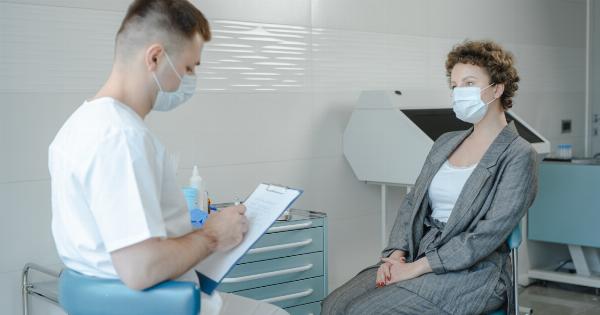AbbVie, a global biopharmaceutical company, has announced encouraging results from its clinical trials of treatments for Hepatitis C, a viral infection that affects more than 71 million people worldwide, according to the World Health Organization.
The two Phase III trials, POLARIS-1 and POLARIS-4, demonstrated that AbbVie’s investigational, once-daily, combination therapy for chronic hepatitis C (HCV) achieved high sustained virologic response rates (SVR) among patients.
What is Chronic Hepatitis C?
Hepatitis C is a viral infection that attacks the liver and causes inflammation.
It is usually spread through contact with infected blood, and patients with chronic Hepatitis C are at risk of developing liver cirrhosis, liver cancer, and other liver-related complications that can be fatal. Hepatitis C is a global health problem that affects millions of people, but AbbVie is at the forefront of developing innovative therapies to combat the disease.
The POLARIS Trials
The POLARIS-1 and POLARIS-4 trials are part of AbbVie’s clinical development program evaluating the use of a once-daily, ribavirin-free, pan-genotypic regimen of glecaprevir/pibrentasvir (G/P) for the treatment of chronic Hepatitis C virus infection in patients who failed prior treatments. POLARIS-1 included 703 patients with HCV genotype 1 (GT1) and POLARIS-4 included 341 patients with HCV genotype 4 (GT4).
In both trials, patients received either the combination therapy of G/P for 8 weeks or the same treatment for 12 weeks, depending on their prior treatment history.
The primary endpoint of the study was to evaluate the proportion of patients with SVR12, which means undetectable circulating HCV RNA 12 weeks after treatment discontinuation. The trials also evaluated the safety and tolerability of G/P in patients with chronic Hepatitis C.
Positive Results
AbbVie announced that in both POLARIS-1 and POLARIS-4 trials, patients who received the 8-week treatment regimen of G/P achieved high SVR12 rates.
Specifically, in POLARIS-1, 97.5% of patients with prior treatment failure achieved SVR12 after 8 weeks of treatment, while in POLARIS-4, 100% of patients achieved SVR12 after the same duration of treatment. In both trials, patients who received the 12-week G/P regimen also achieved high SVR12 rates. The results demonstrated a high overall cure rate of HCV in patients receiving G/P, regardless of their prior treatment history.
The combination therapy was also well-tolerated, with low rates of adverse events reported in both trials.
What the Results Mean
HCV is a hard-to-treat disease, and many patients have failed to respond to prior treatments, including interferon-based therapies.
The results of the POLARIS-1 and POLARIS-4 trials show that G/P is effective in treating HCV in patients who failed prior therapies, offering new hope for people living with chronic Hepatitis C. The results are particularly promising for patients with HCV genotype 4, which is common in certain regions such as the Middle East and Africa where the disease is highly prevalent.
Implications for the Future
The results of the POLARIS-1 and POLARIS-4 trials suggest that AbbVie’s G/P combination therapy could become an important treatment option for patients with chronic Hepatitis C, including those who have previously failed to respond to other treatments. The drug’s pan-genotypic nature is also significant, meaning it can treat multiple strains of the virus, simplifying and streamlining the treatment process.
The positive results of the POLARIS trials give hope to patients and healthcare providers battling this deadly disease.
Conclusion
AbbVie’s clinical trials of combination therapy for chronic hepatitis C have yielded positive results, demonstrating that its investigational daily treatment regimen is highly effective in treating the disease, with high SVR rates and low rates of adverse events. These results offer hope to patients living with HCV, including those who have failed prior therapies, and provide insights into future therapies for the disease.
AbbVie’s healthcare innovation is emblematic of the positive change that pharmaceutical companies can make in the world, and its work on Hepatitis C is a significant step towards improving health outcomes and saving lives.




























